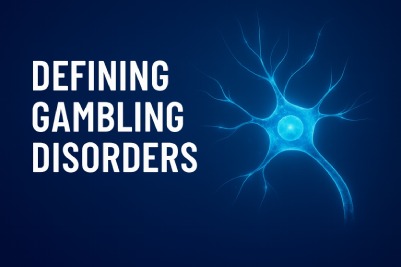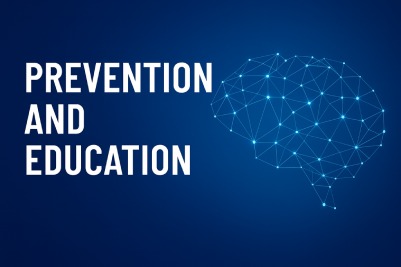Are Gambling Rates Increasing?
A Tran et al. (2024) systematic review, which included 342 studies spread across 68 countries, found that 46.2% of adults had gambled in the 12 months preceding the studies. Interestingly, men had higher participation rates, averaging 49.1% while women had a 37.4% participation rate. However, the rates were not standard across the regions. In Australia, for example, 70% of adults studied had engaged in gambling in the last 12 months compared to 57.2% of adults in Eastern Europe. But it wasn’t just adults who were placing wagers. Tran et al. (2024) found that 40.8% of the adolescent boys and 21% of the adolescent girls had also gambled within that period, thus suggesting that gambling was not just an activity that adults enjoyed. These findings, which were compiled from over 300 studies, pointed to one thing – gambling rates were increasing in the world.
As gambling rates have increased, several studies have also found an increase in problem gambling, a behavior in which gamblers are unable to control their desires to place wagers, and one that can have a negative impact on their lives. In one such systematic review, Calado & Griffiths (2016) conducted a systematic review of 69 studies published between 2000 and 2015. They found that problem gambling rates ranged from 0.12% to 5.8% within this period, pointing to a significant increase in problem gambling.
“Among adults who gambled in the past 12 months, 10.9% of women and 17.9% of men engaged in any risk gambling. Among them, 1.2% of women and 2.8% of men experienced problem gambling.” Tran et al. (2024).
The Academic and Public Knowledge Gap
What comes to mind when you come across someone who has invested so much time or money in gambling that their life has taken a hit? Do you think that they are making the choice to gamble their life away? Do you think society is to blame? As much as there is a lot of academic information on why and how people gamble, there is a gap between researchers and the general public, which can result in judgment, misunderstandings, and other negative consequences that only make it harder for problem gamblers to get the help they need.
Our goal is to bridge the gap between public understanding and academic knowledge in the following ways:
- Breaking down academic research into easily understandable information. Be it imaging studies or meta-analyses, we ensure that our readers understand the research and its implications.
- Challenging assumptions. Disinformation and misinformation are significant barriers to addressing problem gambling as well as other societal issues. Rather than judgment, we focus on curiosity, where we break down the actual facts with empathy.
Most importantly, we aim to help people make informed decisions based on the available research. We are not here to tell you what is right or wrong. Instead, we are here to share science-backed insights.
What Then, is Our Approach?
We believe that while information is power, the source also matters. That is why we have built our site on the following sources:
- Peer-reviewed academic journal articles that delve into the psychology and sociology behind gambling.
- Academic books that offer insights into behavioral studies.
- Case studies involving clinical and observational research.
When picking our sources, we follow a strict vetting process. First, we only choose those that have been published by credible journals, institutions, or scholars in behavioral sciences. Secondly, we rely heavily on peer-reviewed work. Thirdly, we use open-access articles to ensure that all our readers are able to access the resources for free for further reading. And fourth, we cite all our references, allowing you to verify the information. Transparency is at the core of our site, and we encourage all our readers to hold us accountable.
What Can You Expect?
Our site is a one-stop shop for all things gambling research. As such, whether you are a student, a researcher, a caregiver, or someone who’s interested in learning more about gambling, we’ve got your back. Here is what you can expect from us:
Simplicity
We break down studies into simple articles that are devoid of jargon. So, regardless of your expertise in gambling terminology or behavioral patterns, we will have you covered.
Real insights
What’s on paper may not always reflect what you see in person. We delve into how personal behavior may differ from the academic models used in gambling studies.
Links
With several studies covering the nuances of gambling, it can be challenging to figure out which one to read. We categorize our studies by theories and patterns to help you access these resources faster. And we include detailed summaries of each study.
Neutrality
We are not here to persuade you to see things from our perspective, nor do we want to assign moral values to gambling in any way. Our sole aim is to share information and allow you to interpret the analyses by yourself.
At the end of the day, our goal is to help you feel empowered through knowledge. When you understand why people engage in certain behaviors, you are able to approach their challenges from an empathetic perspective rather than a reactive one. So, whether you are reading to learn more about other people or yourself, we will enable you to see both sides of the coin, which will improve your decision-making.
Featured Articles

Why Do Gamblers Chase Losses?
Chasing losses is a widely-studied aspect of gambling, as researchers, gamblers, and various stakeholders have always been curious about the motivations behind this behavior.
Read More
Defining Gambling Disorders
Gambling disorders are not a single type of condition, they are often the amalgamation of personal traits, gambling behavioral patterns and are also impacted by social environments.
Read More
Prevention and Education
Just how much does gambling affect the individual and society at large? This in-depth guide leaves no stone unturned by offering research-backed insights.
Read MoreReady to Start Learning?
Below are the key categories on our site, all of which explore the science of gambling behaviors:
Psychological mechanisms
Learn more about what happens inside someone’s brain when they gamble. From dopamine triggers to cognitive distortions and habit formation, our studies explain it all.
Learn MoreSocial and cultural influences
Do societies play a role in gambling prevalence? Our studies explore various societal aspects, from group dynamics to family history and the role of the media.
Learn MoreVulnerability and risk groups
Who is at risk of problem gambling and why? We look at all factors that play a part in gambling behaviors, including age, personality, and more.
Learn MoreAs always, all our guides feature peer-reviewed open-access case studies for academic accuracy!
FAQs
Our goal is to provide science-based insights on gambling, including why people gamble, the risks involved, and the impacts of this on individuals and society.
Yes. We rely on reputable peer-reviewed studies and include all our sources in every article for future reference.
Our work, which relies on academic studies, can serve you in the classroom and research projects. You are welcome to use it for academic purposes.
References
- Calado, F., & Griffiths, M. D. (2016). Problem gambling worldwide: An update and systematic review of empirical research (2000–2015). Journal of Behavioral Addictions, 5(4), 592–613. https://doi.org/10.1556/2006.5.2016.073
- Tran, K., et al. (2024). Global Prevalence of Gambling and Problem Gambling Among Adults and Adolescents. GREO Evidence Centre. Retrieved from https://www.greo.ca


